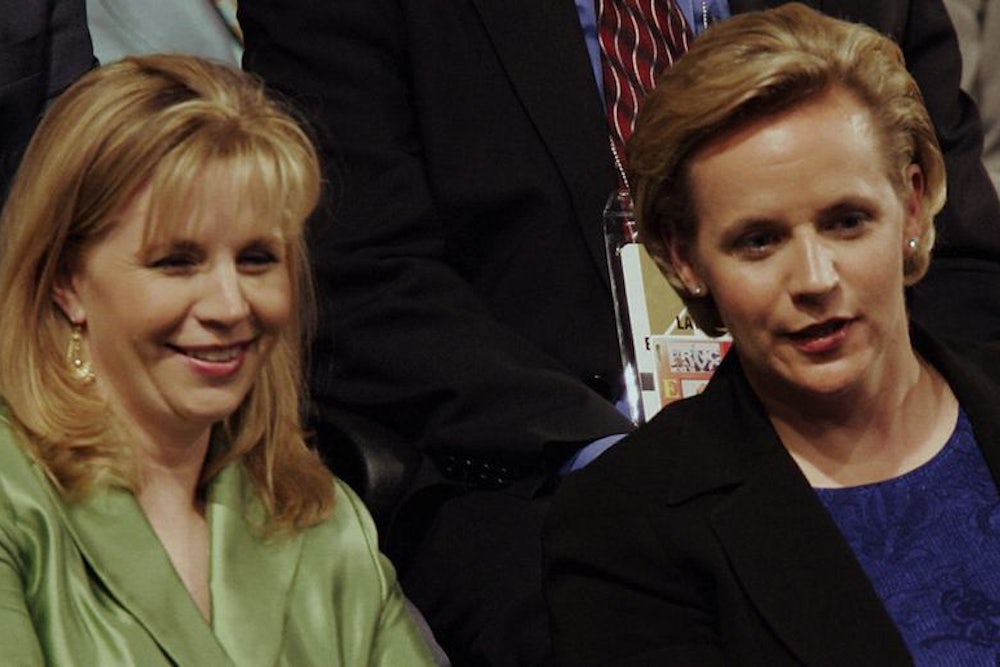As the eventual triumph of marriage equality in the United States came to seem more and more inevitable over the past several months and years, a new line emerged among some liberals: Okay, this argument went, we fought for it, we are winning, and we will win; but with all the states passing it, with the Supreme Court codifying it, and with public opinion moving unmistakably toward accepting it, its time as a resonant political issue is over. And meanwhile, we (liberals) are losing on a number of other fronts—fiscal, state-power, environmental, labor. Time to stop the self-congratulatory Facebook posts and turn our attention to battles that are still joined. “While progressives were devoting deserved attention to gay rights,” wrote Dahlia Lithwick and Barry Friedman in a representative article in July, “they simultaneously turned their backs on much of what they once believed.”
This argument was always too sophisticated and, even more, always too pleased with its own sophistication. (I should know, because I was a prime espouser of it.) Some news over Labor Day weekend ought to bring us back to Earth and remind us that the fight for marriage equality is in fact far from over—and, what’s more, that marriage’s utility as an anti-Republican wedge issue is equally alive and well.
In her quest to defeat Wyoming’s incumbent Republican Sen. Mike Enzi in next year’s primary, Liz Cheney, daughter of the former vice president (and former Wyoming congressman), has all but put a blinking sign with the word “CARPETBAGGER” and an arrow pointing down over her head. She grew up in Northern Virginia and spent most of her career in D.C., and finally established her potentially Constitutionally mandated residence last year when she bought a house in the Wyoming resort town of Jackson Hole. (Ask your East Coast friends about Jackson Hole.) Maybe she believes that her boast, in her announcement video, that her ancestors first came to Wyoming in 1852 will endear her to the state’s actual residents; I think just as likely it will backfire.
Another carpetbagging move Liz Cheney made was, on Friday, to declare her opposition to same-sex marriage. (The main thrust of her statement was to say it should be decided by the states, but she also said, “I am not pro-gay marriage.”) It is possible this is sincere. But it probably isn’t. Liz Cheney’s sister, Mary, is a lesbian who has been a longtime outspoken advocate for marriage equality. Liz Cheney’s father—Dick frickin’ Cheney!—has been on-the-record as in favor of gay marriage for four years, e.g., three years longer than President Barack Obama has. Liz Cheney is a wealthy, well-educated intellectual who lives around a big East Coast city, which means that she is friends with many gay people and, despite her partisan affiliation, is highly likely to favor marriage equality. She is so proud of her anti-marriage equality stance that she announced it the Friday before Labor Day weekend.
In response, Mary Cheney publicly struck back, posting to her Facebook page (whence it traveled to all news outlets), “For the record, I love my sister, but she is dead wrong on the issue of marriage.”
This back-and-forth tells us several things: That Liz Cheney feels she needs to take this position in order to compete in the Wyoming Republican primary (Enzi has voted twice to amend the Constitution to define marriage as being between a man and a woman); that Republicans who take anti-equality positions can expect to find opposition not only from Democrats but from Republicans, even ones who are their sister; and that not everybody in the United States has come around to the conclusion Dick Cheney has, namely, that “freedom means freedom for everyone.”
So, progressives, those of us who thought it was time to let the marriage fight run its benevolent course were wrong. We always knew your Facebook posts were correct. But what the intra-Cheney contretemps reveals is that they remain relevant. As any look at the do-nothing House shows, the national Republican Party is chained to its riotously out-of-touch base (which, as my colleague Nate Cohn has noted, is partly the result of awarding a state as many senators as it has escalators), and these are exactly the people who will determine Wyoming’s 2014 Republican Senate candidate. As a result, while in 2004 it was possible that anti-equality ballot initiatives in 11 states helped President George W. Bush, who had endorsed the Federal Marriage Amendment, win re-election, in 2016 it is conceivable that the national Republican Party’s opposition to marriage equality will hurt it.1
More importantly, Cheney’s statement is a reminder that there are large pockets of the country in which significant majorities still support marriage inequality. Wyoming was Matthew Shepard’s state. The next Matthew Shepard—the next gay kid from Casper—will grow up in a state that remains hostile to his civil rights. The (very real) electoral advantages to strong progressive support for gay marriage seem very secondary when you remember that. Marriage equality’s victory may be inevitable. But that victory still can’t come soon enough.
Follow @marcatracy
By the way, I would set the over-under on Bush endorsing marriage equality at four years, and I would take the under.
An earlier version of this post misspelled Casper, Wyoming.
